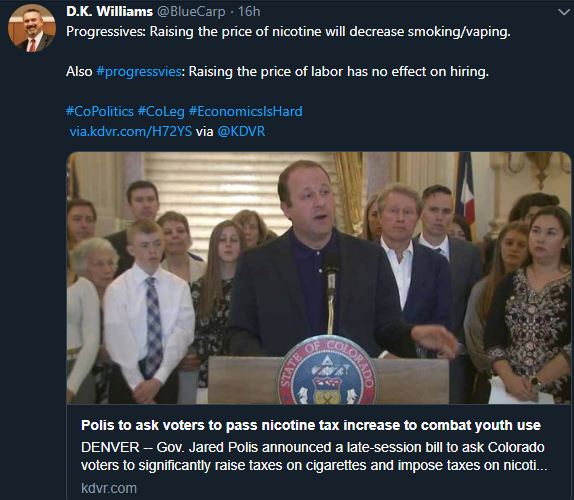
Category Archives: Media
Apr
26
Apr
26
It Is More Important To Kill Bad Bills , Than To Pass Good Ones
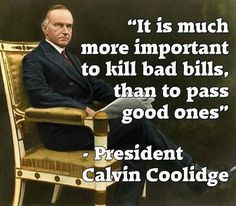
Apr
26
Timely Quote From President Calvin Coolidge
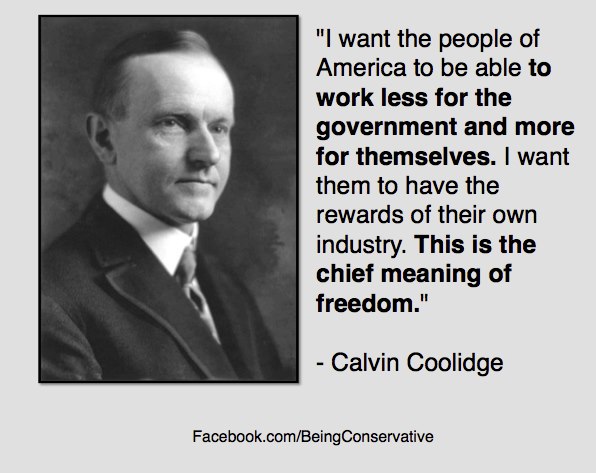
Apr
26
There’s Nothing “Modest” About Taking Away People’s TABOR Refunds PERMANENTLY

Apr
26
Liberals Used To Be The “Tax & Spend” Party But They Have Completely Turned That Around
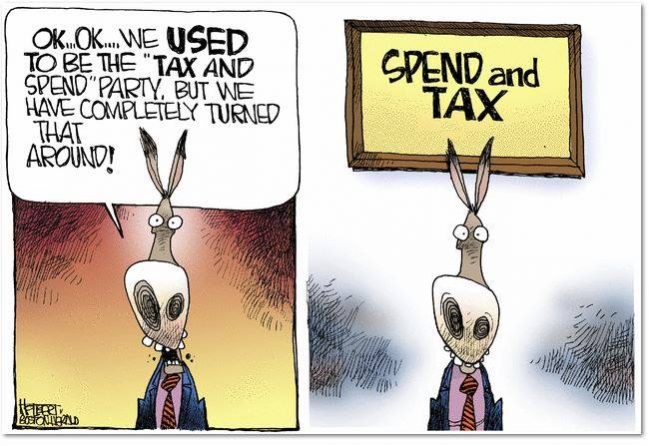
Apr
25
The Probability Of Getting Fooled On April Fools vs Election Day

Apr
25
Do We Need Government To Solve All Of Our Problems?
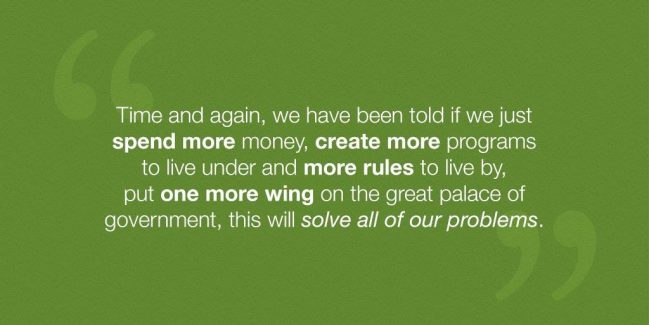
Apr
25
I Will Resist You If You….

Apr
25
Coloradans may face 4 spending questions this year. Will new nicotine tax measure overload the ballot?
Michael Fields@MichaelCLFields Tweeted:
The state budget went up by $1.6B again this year. Government has enough money already.



Coloradans may face 4 spending questions this year. Will new nicotine tax measure overload the ballot?
The proposal, announced Wednesday by Gov. Jared Polis and Democratic state lawmakers, would set a uniform nicotine tax at 62 percent. That would lift the taxes on a package of cigarettes to $2.49 from 84 cents.
Apr
25
Why #TABOR Matters on April 25
#TheBottomLine
#TABOR
#ThankGodForTABOR
